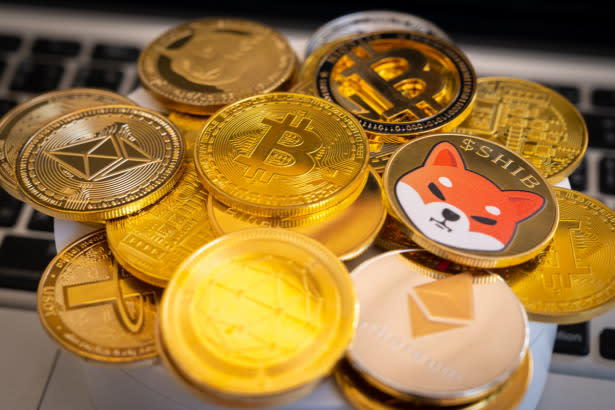Cryptocurrency


What Is Uniswap (UNI)?
Uniswap (UNI) is a decentralized exchange (DEX) protocol built on the Ethereum blockchain. It allows users to swap various ERC-20 tokens without the need for a centralized intermediary. Uniswap uses an automated market-making (AMM) system, where liquidity providers deposit funds into pools to facilitate trading.
Here are some key features and aspects of Uniswap:
1. Liquidity Pools: Users can provide liquidity to Uniswap by depositing an equivalent value of two tokens into a liquidity pool. In return, they receive pool tokens that represent their share of the pool. Liquidity providers earn trading fees from swaps that occur in the pool.
2. Automated Market-Making: Uniswap uses a constant product formula to determine the price of tokens in its pools. This formula ensures that the product of the amount of each token in the pool remains constant, which automatically adjusts the price based on supply and demand.
3. Trading Fees: Each trade on Uniswap incurs a 0.3% fee, which is distributed to liquidity providers in proportion to their share of the pool. This incentivizes users to provide liquidity to the platform.
4. UNI Token: UNI is the native governance token of the Uniswap protocol. Holders of UNI can participate in the governance of the platform by proposing and voting on changes to the protocol. UNI tokens were distributed to users who interacted with Uniswap before a certain date, as well as through ongoing liquidity mining programs.
5. Decentralization: Uniswap is a decentralized platform, meaning that it operates without a central authority. This allows for censorship-resistant trading and eliminates the risk of a single point of failure.
6. Version 3: Uniswap recently launched its third iteration, Uniswap V3, which introduced concentrated liquidity, allowing liquidity providers to concentrate their funds within a price range, potentially increasing capital efficiency.
Overall, Uniswap has become one of the most popular decentralized exchanges in the cryptocurrency space, offering users a simple and efficient way to trade a wide range of tokens while maintaining control of their funds.
Uniswap was created by Hayden Adams, who is considered the founder of the protocol. Hayden Adams is a software engineer and entrepreneur who developed Uniswap as a side project while working at Siemens. He launched Uniswap in November 2018, and it quickly gained popularity within the decentralized finance (DeFi) community.
Hayden Adams is known for his innovative approach to decentralized exchange design, particularly the use of automated market-making and the constant product formula to enable efficient token swaps on the Ethereum blockchain. His work on Uniswap has been instrumental in shaping the DeFi ecosystem and popularizing the concept of decentralized exchanges.
While Hayden Adams is the primary figure associated with the creation of Uniswap, the protocol itself is governed by the Uniswap community through the UNI token. UNI holders have the power to propose and vote on changes to the protocol, making Uniswap a decentralized and community-driven platform.
Overall, Hayden Adams’ vision and technical expertise have played a crucial role in the success of Uniswap as one of the leading decentralized exchanges in the cryptocurrency space.
Uniswap (UNI) stands out in the decentralized exchange (DEX) space for several reasons, making it a unique and popular platform for trading ERC-20 tokens.
Here are some key aspects that make Uniswap unique:
1. Automated Market-Making (AMM): Uniswap pioneered the use of AMM in decentralized exchanges, allowing users to trade tokens directly from their wallets without the need for order books or centralized intermediaries. The constant product formula used by Uniswap ensures that prices adjust automatically based on supply and demand, providing a simple and efficient trading experience.
2. Decentralization: Uniswap is a decentralized platform built on the Ethereum blockchain, meaning that it operates without a central authority. This decentralized nature ensures censorship-resistant trading and eliminates the risk of a single point of failure. Users have full control of their funds and can trade directly from their wallets.
3. Liquidity Pools: Uniswap’s liquidity pools allow users to provide liquidity and earn fees by depositing an equivalent value of two tokens into a pool. This model incentivizes users to participate in the platform and helps ensure liquidity for a wide range of tokens. The ability to trade any ERC-20 token on Uniswap has contributed to its popularity.
4. UNI Governance Token: UNI is the native governance token of Uniswap, allowing holders to participate in the governance of the protocol. UNI holders can propose and vote on changes to the platform, including fee structures, new features, and upgrades. This community-driven approach gives users a voice in the development of Uniswap.
5. Continuous Innovation: Uniswap has demonstrated a commitment to innovation with the launch of Uniswap V3, which introduced features like concentrated liquidity to increase capital efficiency for liquidity providers. The Uniswap team continues to iterate and improve the protocol to meet the evolving needs of the DeFi ecosystem.
6. User-Friendly Interface: Uniswap’s interface is designed to be user-friendly and accessible to both experienced traders and newcomers to DeFi. The platform’s intuitive design and seamless trading experience have contributed to its widespread adoption and popularity.
Overall, Uniswap’s unique combination of AMM, decentralization, liquidity pools, governance through the UNI token, continuous innovation, and user-friendly interface make it a standout decentralized exchange in the cryptocurrency space.
The total supply of Uniswap (UNI) tokens is capped at 1 billion. The initial distribution of UNI tokens was as follows:
1. Community Allocation: 60% of the total UNI supply was allocated to the Uniswap community. These tokens were distributed to historical liquidity providers, users, and supporters of the platform.
2. Team and Advisors: 21.51% of the total supply was allocated to the Uniswap team and advisors. These tokens are subject to vesting schedules to align incentives and promote the long-term success of the protocol.
3. Investors: 17.80% of the total supply was allocated to investors who supported the development and growth of Uniswap.
4. Ecosystem: 0.69% of the total supply was allocated to the Uniswap ecosystem fund to support ongoing development, grants, and partnerships.
The circulating supply of UNI tokens changes over time as new tokens are minted through liquidity mining programs and as existing tokens are distributed or used within the Uniswap ecosystem. Users can track the current circulating supply of UNI tokens on various cryptocurrency data websites and platforms.
It’s important to note that the total supply of UNI tokens is fixed at 1 billion, and the distribution of tokens is designed to incentivize participation in the Uniswap ecosystem while supporting the long-term sustainability and growth of the platform.
The Uniswap (UNI) network is secured through a combination of blockchain technology, decentralized governance, and cryptography.
Here are the key aspects that contribute to the security of the Uniswap network:
1. Ethereum Blockchain: Uniswap is built on the Ethereum blockchain, which is one of the most secure and widely used blockchains in the cryptocurrency space. Ethereum’s proof-of-work consensus mechanism, along with its network of nodes and miners, ensures the security and immutability of transactions on the Uniswap platform.
2. Smart Contracts: Uniswap’s core functionalities, such as the automated market-making algorithm and liquidity pools, are implemented through smart contracts on the Ethereum blockchain. These smart contracts are publicly auditable and transparent, reducing the risk of manipulation or fraud.
3. Decentralization: Uniswap operates as a decentralized exchange, meaning that there is no central point of control or failure. Trades occur directly between users’ wallets, and liquidity is provided by a network of decentralized liquidity providers. This decentralized nature helps protect the platform from censorship and external interference.
4. Liquidity Pools: The liquidity pools on Uniswap are secured through a mechanism that ensures the integrity of the funds deposited by liquidity providers. Users can participate in liquidity pools by depositing tokens into smart contracts, and the automated market-making algorithm ensures that trades are executed fairly based on the pool’s parameters.
5. UNI Governance: The Uniswap protocol is governed by the UNI token holders, who can propose and vote on changes to the platform. This decentralized governance model allows the community to collectively make decisions about the future development and security of the Uniswap network.
6. Security Audits: Uniswap conducts regular security audits of its smart contracts and platform to identify and address potential vulnerabilities. By working with reputable security firms and auditors, Uniswap aims to maintain a high level of security and protect user funds from potential threats.
Overall, the combination of blockchain technology, smart contracts, decentralization, decentralized governance, liquidity pools, and security audits helps ensure the security and integrity of the Uniswap network, providing users with a safe and reliable platform for decentralized trading.
Start trading with 100,000 USD on your demo account without risking real money. Gain experience with your dedicated investment advisor. When you are ready, take your first step into the world’s largest market!
WhatsApp us
